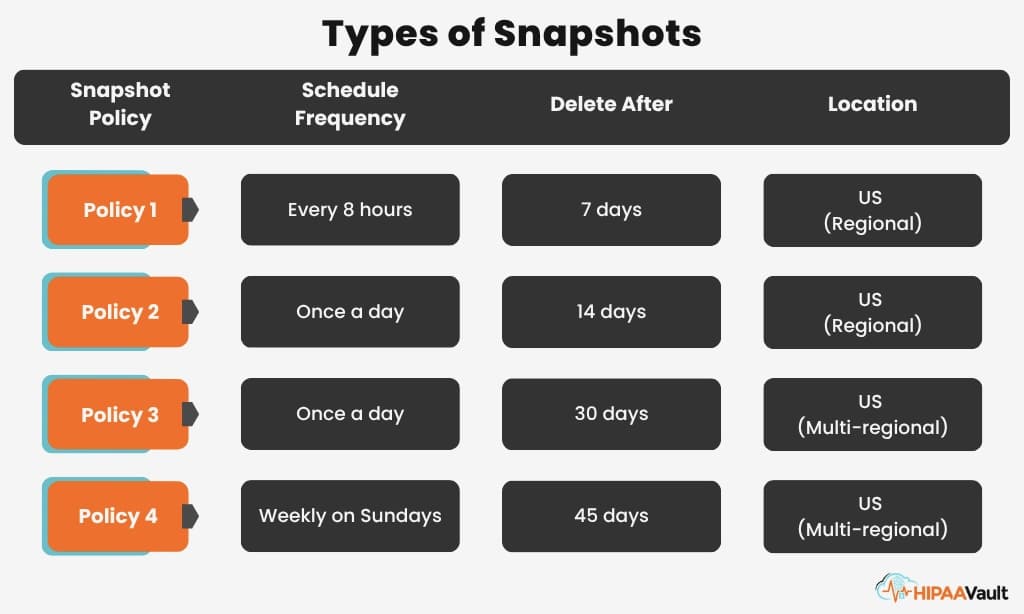Everything healthcare providers and hosting vendors need to know about BAAs, compliance, and protecting PHI.
When it comes to HIPAA compliance, few documents are as critical as the Business Associate Agreement (BAA).
Every healthcare provider, cloud hosting company, or software vendor that touches Protected Health Information (PHI) must understand BAAs.
Without them, you risk steep penalties, data breaches, and compliance failures.
In this HIPAA Compliance Guide, we’ll explain exactly what BAAs are, why they’re essential for HIPAA compliance in healthcare software and hosting, and what elements every HIPAA-compliant BAA must include.
👉 Need a HIPAA-compliant hosting partner who provides signed BAAs with every plan? HIPAA Vault’s HIPAA hosting services include BAAs at no extra cost.
What Are Business Associate Agreements (BAAs) and Why They Matter
A Business Associate Agreement (BAA) is a legally binding contract between a covered entity (like a healthcare provider) and a business associate (like a cloud hosting company, billing service, or EHR software vendor).
- It ensures that any third-party handling PHI follows strict HIPAA standards.
- The BAA outlines what the business associate can and cannot do with PHI.
- Without a signed BAA, both parties are exposed to serious liability.
According to the U.S. Department of Health and Human Services (HHS), covered entities are required under 45 CFR §§ 164.502(e) and 164.504(e) to obtain satisfactory assurances that their business associates will safeguard PHI.
Why BAAs matter:
- They limit liability for both covered entities and vendors.
- They enforce HIPAA compliance, reducing the risk of fines.
- They set security expectations, ensuring PHI remains protected.
💡 For healthcare hosting and SaaS providers, the BAA is your first line of defense against HIPAA violations.
Who Needs a BAA? Scope and Examples
The next question in this HIPAA Compliance Guide is: who exactly needs a BAA?
Under HIPAA, any vendor that handles PHI on behalf of a covered entity qualifies as a business associate.
Common examples include:
- Cloud hosting providers (AWS, Azure, HIPAA Vault)
- EHR software vendors
- Medical billing companies
- Transcription services
- Healthcare consultants
- IT support providers
- Law firms handling medical records
When is a BAA not required?
- Between two covered entities for treatment purposes.
- With “conduit services” (e.g., the postal service or an ISP that merely transmits data without storage).
- For certain provider referrals covered under Treatment, Payment, and Operations (TPO) exceptions.
👉 At HIPAA Vault, every hosting plan includes a signed BAA, ensuring that your PHI remains protected and compliant.
For a deeper dive, see HIPAA Journal’s BAA Guide.
Essential Components of a HIPAA-Compliant BAA
Here’s the heart of our HIPAA Compliance Guide: the 10 must-have components of a Business Associate Agreement.
1. Permitted Uses & Disclosures of PHI
The BAA must clearly define how PHI can be used by the business associate.
For example, hosting providers may use PHI solely for managing secure infrastructure — not for marketing or resale.
2. Limits on Further Use or Disclosure
Business associates cannot use or disclose PHI beyond the contract terms, except as required by law.
3. Safeguards
The BAA must require:
- Administrative safeguards (policies, training, audits).
- Physical safeguards (secure facilities, locked access).
- Technical safeguards (encryption, MFA, intrusion detection).
👉 HIPAA Vault implements all three safeguard categories as part of its managed services.
4. Breach & Incident Reporting
The agreement must define:
- What qualifies as a breach.
- How quickly the associate must report it (e.g., within 10 days).
- Who is responsible for breach notifications.
💡 Fun fact: HIPAA requires breaches affecting more than 500 individuals to be reported to HHS and the media.
5. Support for Individual Rights
Business associates must help covered entities fulfill patient rights, including:
- Accessing medical records.
- Correcting or amending records.
- Providing an accounting of disclosures.
6. HHS Audit Access
A compliant BAA must state that the Department of Health and Human Services (HHS) has the right to audit the business associate’s practices, policies, and records related to PHI.
This ensures transparency and accountability for both covered entities and their vendors.
7. Return or Destruction of PHI at Termination
When the business relationship ends:
- PHI must either be returned to the covered entity, or
- Securely destroyed in compliance with HIPAA guidelines.
This prevents PHI from being abandoned or improperly stored after contracts expire.
8. Subcontractor Obligations
If a business associate hires subcontractors who also handle PHI, those subcontractors must:
- Sign their own BAAs, and
- Be bound by the same security and privacy terms.
This “downstream compliance” ensures PHI remains secure at every level.
9. Termination Rights
Covered entities must have the right to terminate the BAA if the business associate violates HIPAA requirements.
This clause protects healthcare providers from being tied to a non-compliant vendor.
10. Enforcement & Liability
While not always required by HIPAA, many BAAs include liability clauses that define:
- Financial responsibility in case of a breach.
- Indemnification obligations.
- Corrective action requirements.
👉 At HIPAA Vault, we sign enforceable BAAs with every client, helping providers reduce risk while staying compliant.
Optional Clauses & Best Practices
Beyond the required provisions, there are best practices that strengthen a BAA and further protect healthcare organizations.
Enhanced Security Measures
Specify security measures such as:
- Data encryption at rest and in transit.
- Multi-factor authentication (MFA).
- Zero-trust access policies.
👉 HIPAA Vault’s hosting services provide encryption, MFA, and intrusion detection by default.
Training Requirements
BAAs can require that the business associate’s employees undergo HIPAA security and privacy training.
This ensures that everyone handling PHI understands their compliance responsibilities.
State & Industry-Specific Requirements
Some states impose stricter requirements (e.g., California’s CMIA).
A strong BAA acknowledges and incorporates these requirements where applicable.
Liability & Indemnification
Covered entities may require vendors to take financial responsibility if their mishandling of PHI results in a breach.
Jurisdiction & Dispute Resolution
Clarifying legal jurisdiction, contract duration, and methods of resolving disputes helps avoid ambiguity if conflicts arise.
Customize Your HIPAA Bundle—Pick 3 and Save 15%
Don't pay for tools you don't use. Combine Hosting, Email, Fax, or Text into one affordable, managed plan.
Learn MoreKey Takeaways
- A Business Associate Agreement (BAA) is a HIPAA-mandated contract between covered entities and vendors handling PHI.
- BAAs define how PHI may be used, disclosed, secured, and destroyed.
- Essential components include safeguards, breach reporting, subcontractor obligations, and termination rights.
- Optional clauses like liability, training, and jurisdiction strengthen compliance.
- Without a signed BAA, healthcare providers and vendors risk severe HIPAA penalties and reputational damage.
👉 Want a vendor that takes HIPAA compliance seriously? HIPAA Vault’s HIPAA-compliant cloud hosting
HIPAA Penetration Testing—Go Beyond Automated Scans
Validate your security with an objective, third-party audit. We simulate real cyberattacks to uncover vulnerabilities and provide a comprehensive compliance report.
Learn MoreFAQs
At HIPAA Vault, we understand that HIPAA compliance isn’t optional — it’s essential.
That’s why every hosting plan includes:
- A signed BAA,
- 24/7/365 managed security, and
- Expert support from HIPAA specialists.
👉 Ready to secure your PHI with confidence?
Explore our HIPAA Hosting Plans or contact us today for a free consultation.








